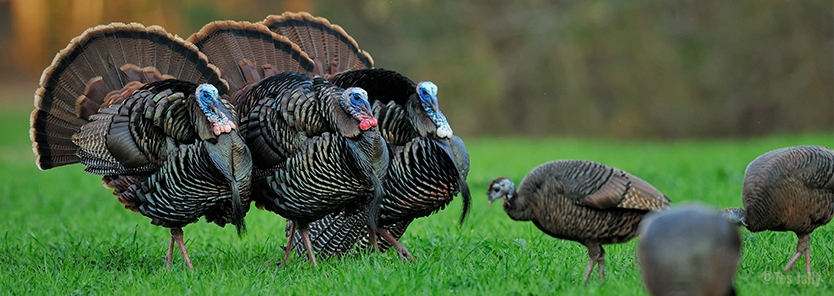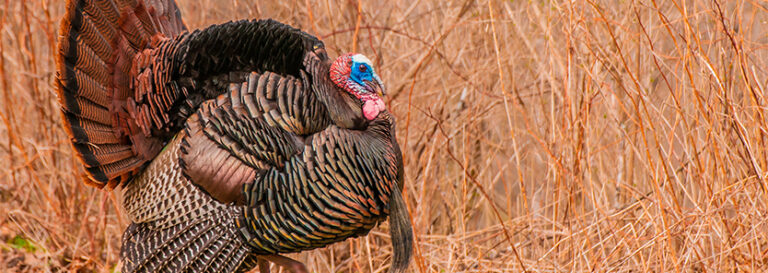Game bird food is essential for providing the necessary nutrients and energy for these magnificent birds to thrive. This comprehensive guide delves into the nutritional requirements, types of food, feeding strategies, and common feeding problems to empower game bird owners with the knowledge to care for their feathered friends.
Understanding the specific dietary needs of game birds is crucial for ensuring their well-being. From protein and carbohydrates to vitamins and minerals, we’ll explore the essential components of a balanced diet.
Nutritional Requirements of Game Birds

Game birds, including pheasants, quail, and grouse, have specific nutritional needs that vary depending on their species, age, and activity level. Providing a balanced diet that meets these requirements is essential for optimal health, performance, and reproduction.
Protein
Protein is crucial for growth, muscle development, and egg production. Game birds require a diet with 18-22% protein, with higher levels recommended for young birds and during breeding season.
Carbohydrates
Carbohydrates provide energy for game birds. They should constitute 40-50% of the diet and include complex carbohydrates such as grains, seeds, and vegetables.
Fats
Fats are an essential source of energy and provide insulation. Game birds require 5-8% fat in their diet, with higher levels recommended for birds in cold climates.
Vitamins and Minerals
Game birds require a wide range of vitamins and minerals for proper growth, development, and immune function. Essential vitamins include vitamin A, D, E, and B vitamins, while important minerals include calcium, phosphorus, and selenium.
Dietary Considerations for Different Species
Different game bird species have specific dietary requirements. For example, pheasants require a higher protein diet than quail, while grouse prefer a diet high in carbohydrates.
Importance of a Balanced Diet
Providing a balanced diet that meets the nutritional requirements of game birds is crucial for their health, performance, and reproductive success. Deficiencies or excesses of any nutrient can lead to health problems, reduced productivity, and increased susceptibility to disease.
Types of Game Bird Food

Game birds have diverse dietary needs that vary depending on their species, age, and environment. Understanding the different types of game bird food available is essential for providing them with a balanced and nutritious diet.
Commercial Feeds
Commercial game bird feeds are formulated to meet the specific nutritional requirements of different game bird species. They are typically pelleted or crumbled and contain a balanced mix of proteins, carbohydrates, fats, vitamins, and minerals.
- Pros:Consistent nutritional value, convenient to use, and can be tailored to specific game bird species.
- Cons:Can be more expensive than other food sources and may not provide the variety that natural food sources offer.
Seed Mixes
Seed mixes are a popular option for feeding game birds. They typically contain a variety of seeds, such as millet, milo, sunflower seeds, and cracked corn. Seed mixes are relatively inexpensive and easy to obtain, but they may not provide a complete and balanced diet.
- Pros:Inexpensive, easy to find, and game birds enjoy them.
- Cons:May not provide a complete and balanced diet, and game birds may selectively eat certain seeds, leading to nutritional deficiencies.
Natural Food Sources
Game birds also rely on natural food sources, such as insects, berries, and vegetation. These foods provide a variety of nutrients and help keep game birds healthy and active.
- Pros:Provides a natural and varied diet, supports game bird foraging behavior, and is generally free of charge.
- Cons:May not be available in sufficient quantities, especially during certain seasons, and may contain parasites or toxins.
Feeding Methods
The choice of feeding method depends on the species of game bird, the availability of natural food sources, and the desired level of control over the bird’s diet.
- Free-choice feeding:Birds are provided with unlimited access to food and water, allowing them to eat as much as they need.
- Controlled feeding:Birds are fed specific amounts of food at regular intervals, ensuring that they receive a balanced diet.
- Supplemental feeding:Natural food sources are supplemented with commercial feeds or seed mixes to ensure that game birds have access to a complete and balanced diet.
Feeding Strategies for Game Birds
Providing a balanced and consistent diet is crucial for the health and well-being of game birds. Feeding strategies should be tailored to the specific age, species, and activity level of the birds.
Establishing a Feeding Plan
The feeding plan should consider the nutritional requirements of the birds at different stages of their life cycle. Young birds require a higher protein content for growth and development, while adult birds may need a lower protein diet to maintain weight.
- Age:Younger birds need a higher protein content for growth, while older birds need a lower protein diet for maintenance.
- Species:Different species of game birds have varying nutritional requirements based on their natural diets and habitats.
- Activity Level:Birds that are more active require a higher calorie intake to meet their energy demands.
Consistency and Access to Water
Maintaining a consistent feeding schedule helps regulate the birds’ digestive systems and prevents overeating or underfeeding. Providing access to fresh, clean water at all times is also essential for hydration and overall health.
Managing Feed Intake
Monitoring feed intake is important to prevent overfeeding or underfeeding. Overfeeding can lead to obesity and health problems, while underfeeding can result in nutrient deficiencies. Feeding strategies should include methods to control feed consumption, such as:
- Limited Feeding:Restricting access to food for a specific period each day.
- Controlled Feeding:Providing a set amount of food at regular intervals.
- Observation:Monitoring the birds’ behavior and body condition to adjust feed intake as needed.
Common Feeding Problems and Solutions: Game Bird Food

Game bird owners may encounter various feeding problems that can affect the health and productivity of their birds. Identifying and addressing these problems promptly is crucial for ensuring optimal nutrition and well-being.
Common feeding problems include nutritional deficiencies, digestive issues, and feed contamination. Nutritional deficiencies can arise due to an imbalance in the bird’s diet, resulting in health issues such as stunted growth, poor feather quality, and reduced egg production. Digestive problems can manifest as diarrhea, constipation, or other digestive disturbances, often caused by improper feeding practices or contaminated feed.
Nutritional Deficiencies
- Symptoms:Stunted growth, poor feather quality, reduced egg production, lethargy
- Solutions:Ensure a balanced diet that meets the nutritional requirements of the specific game bird species. Supplement the diet with vitamins and minerals as needed.
Digestive Issues, Game bird food
- Symptoms:Diarrhea, constipation, vomiting, reduced appetite
- Solutions:Identify and eliminate the cause of the digestive issue, such as contaminated feed, sudden dietary changes, or stress. Provide access to clean water and electrolytes to prevent dehydration.
Feed Contamination
- Symptoms:Illness, reduced appetite, lethargy
- Solutions:Inspect feed for signs of contamination, such as mold or insects. Discard contaminated feed and store feed in a clean, dry location. Implement measures to prevent contamination, such as using rodent-proof containers.
Regularly monitoring the health of game birds and adjusting feeding strategies as needed is essential for preventing and addressing feeding problems. Observation of bird behavior, feed consumption, and egg production can provide valuable insights into their nutritional status. By promptly identifying and resolving feeding issues, game bird owners can ensure the well-being and productivity of their birds.
Game Bird Food Storage and Handling
Proper storage and handling of game bird food are crucial to maintain its nutritional value and prevent spoilage. Here are some key techniques:
Storage Techniques
- Store game bird food in a cool, dry place with good ventilation. Avoid exposure to direct sunlight, heat, and moisture.
- Keep food in its original packaging or transfer it to airtight containers to prevent moisture and pests from entering.
- Use food-grade containers or bags that are specifically designed for pet food storage.
- Rotate stock regularly to prevent old food from spoiling.
Pest Control
- Keep storage areas clean and free of food debris to deter pests.
- Inspect food regularly for signs of infestation, such as holes in packaging or droppings.
- Use pest traps or repellents if necessary.
Handling and Preparation
- Always wash your hands before handling game bird food.
- Prepare food according to the manufacturer’s instructions to ensure it is safe for consumption.
- Avoid overfeeding and clean up any uneaten food to prevent spoilage and attract pests.
FAQ Insights
What are the key nutritional requirements for game birds?
Game birds require a balanced diet that includes protein, carbohydrates, fats, vitamins, and minerals in specific proportions.
What are the different types of game bird food available?
Commercial feeds, seed mixes, and natural food sources are the main types of game bird food.
How often should I feed my game birds?
Feeding schedules vary depending on the age, species, and activity level of the birds. A consistent feeding routine is important.
